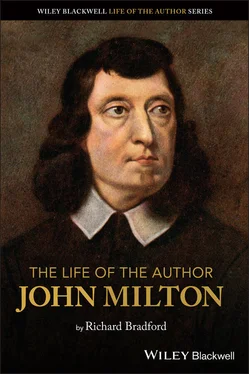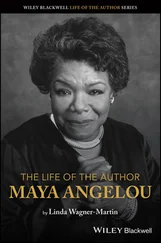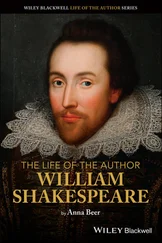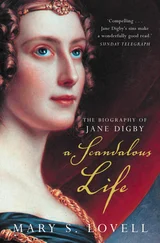Ay touch him; here’s the vein (70)Ay well said (89)That’s well said (109)O, to him to him, wench! He will relent: (124)
Lucio might of course admire her intellectual gravitas and linguistic versatility but it soon becomes evident that the he regards these as of little value in a world governed by instinct and opportunism. He is aware that Angelo is as entranced by her physical presence, and because of her vocation, her hidden sensuality, as he is persuaded by her argument. Angelo, supposedly guardian of high principles, does indeed offer Isabella a reprieve for her brother, provided that she has sex with him. The Duke in disguise arranges a ‘bed trick’ when Angelo’s ex-fiancée Mariana is substituted for Isabella and Angelo becomes entrapped by his own hypocrisies. Isabella typifies the woman in Renaissance drama. She, like her peers, is accorded a degree of autonomy, and self-reliant intelligence but in the end they are subservient to the controlling presence of men, as figures who dominate society and governance. Look beyond Measure for Measure to other plays and you will find that the same allowances given to Isabella – indulgence and conditional respect, but not too much – obtain. But in Comus Milton went radically against prevailing mores. The Brothers eventually arrive ‘with swords drawn’ and transport their sister from Comus’s realm of debased enchantment, but the Lady has already effectively disempowered Comus by undermining his rhetoric. As he puts it, ‘I feel that I do fear/Her words set off by some superior power’ (799–800). No other ‘Lady’ in Renaissance drama exerts such formidable power over her male adversary by turning his poetic and intellectual skills against him.
The exchange anticipates the one that would take place in Book IX of Paradise Lost , between Satan and Eve, with one obvious difference: Eve, despite her precocity, is persuaded and precipitates the Fall of mankind.
It is evident that Milton, even when creating a night of entertainment, was aware of another duty as a poetic authority, someone who would cause his audience in the midst of their enjoyment to stop and think. He had not, while still in his early twenties, attempted to claim for himself the role of the modern epic poet, but thirty years later he would.
In 1637, he wrote to his friend Charles Diodati that he had become particularly concerned with history. He knew well the Greek and Roman theorists of philosophy and politics, but he was equally intrigued by the ways in which classical maxims of government had been variously cited and disintegrated by the warring factions of Europe through the dark ages and during the later medieval period. He had begun to feel that the so-called purer times of early Christianity were to some extent a myth, and was becoming more convinced that the real opportunity for Christian contentment and equilibrium was more recent. He summarised Church history as ‘after many a tedious age, the long deferred but much more wonderful and happy reformation … in these latters day’ ( WJM , III, p. 326). This was his only comment during this period on the religious controversies that had beset Europe for a century and his implication that the ‘Reformation’ might now have reached its culmination might well have been prompted by a sense that in England the true reformers were entering a desperate decisive struggle for survival.
William Laud’s forces of conservative Anglo-Catholicism had, by 1637, gained complete control of the Church and had begun to make use of ecclesiastic courts to supplant the instruments of secular power. Puritan clerics and preachers – all now effectively forbidden from taking up or remaining in posts – were being persecuted as common citizens and censored as speakers and writers. John Bastwick and Henry Burton had, like William Prynne, produced numerous pamphlets which advertised Puritan theology and religious practice, and accused the Laudian establishment and Royal family of courting Catholicism under the disguise of Anglicanism. All three were arrested and summoned before ecclesiastical courts, bodies which refused the accused the protection of Common Law. Each received the same sentence and in June 1637 they were flogged publicly in London and their ears were then hacked off.
In 1635 Milton’s father had moved from Hammersmith to a grander house in the village of Horton a few miles further west. The village, adjacent to the royal palace of Windsor, was idyllically rural, its main houses circling a green and at its centre a pretty church of Norman vintage. On the outskirts was the medieval manor house of Henry Bulstrade, the principal landowner in the locality. Milton senior rented from Bulstrade the second most prestigious house of the area, Berkin Manor, which stood in its own spacious grounds to the east of the village. The original building was demolished in the mid-nineteenth century and replaced by a large farmhouse in the Elizabethan red-brick style which carries the same name. Milton had stayed with the family and continued with his regime of private study, but in 1636–37 the equilibrium of his detached existence would be unsettled. His father, five years retired, was visited by summonses and law suits relating to share dealings with clients of a decade earlier. These would be settled but they reminded his son that the world was something that one was obliged to experience as well as observe. On 3 April 1637 his mother died, an event which brought the family together and united them in a sense of loss. The year, to Milton, would have seemed characterised by endings and terminations. In January he had attended the funeral of the Countess of Derby, effectively his patroness. William Sound, one of his St Paul’s teachers, died a month after that, and during August, London mourned the passing of a figure who seemed to many to be the last remaining representative of a literary generation: Ben Jonson was buried in Westminster Abbey on 6 August. In the same month Milton heard of the death at sea of one of his near contemporaries from Cambridge, Edward King who had, following graduation, been elected to a Fellowship at Christ’s College: King also was a poet. Whether Milton and King had been close friends or passing acquaintances would become a contentious point for the former’s biographers because it was not so much King’s short life and tragic death that has caused him to be remembered to this day but a poem by Milton on both called ‘Lycidas’. The piece was commissioned by John Alsop, a Fellow of Christ’s, as part of the collection of commemorative verses entitled Obsequies for Edward King, lost at sea … . The other twelve verses have largely been forgotten but ‘Lycidas’ became a literary event in its own right and is, after Paradise Lost , Milton’s most complex, puzzling and intensely scrutinised poem. It is, ostensibly and as required, a memorial to King, but its real subject is its author. It has frequently been compared with a piece of music, not because it was intended for song but as a consequence of its curious and unpredictable shifts in tone, subject and perspective. Some found this to be an anticipation of changing harmonies of the symphony (Nicolson, 1971, p. 105), but in truth it bears a closer resemblance to the radical, modernist literary technique of constantly altering the style and the perceived speaking presence of the text. King’s death is its starting point but thereafter it takes us through reflections on the nature of poetry, the complexities of religious belief, and political and theological conflict, all of which are interwoven with intimations of something terrible and apocalyptic about to happen. The question why Milton produced such a strange piece of work can best be addressed by treating it as an allegory. While Milton’s memorial to King is sincere enough it also serves as a pretext for exploring the world from which the latter had recently departed.
Читать дальше












